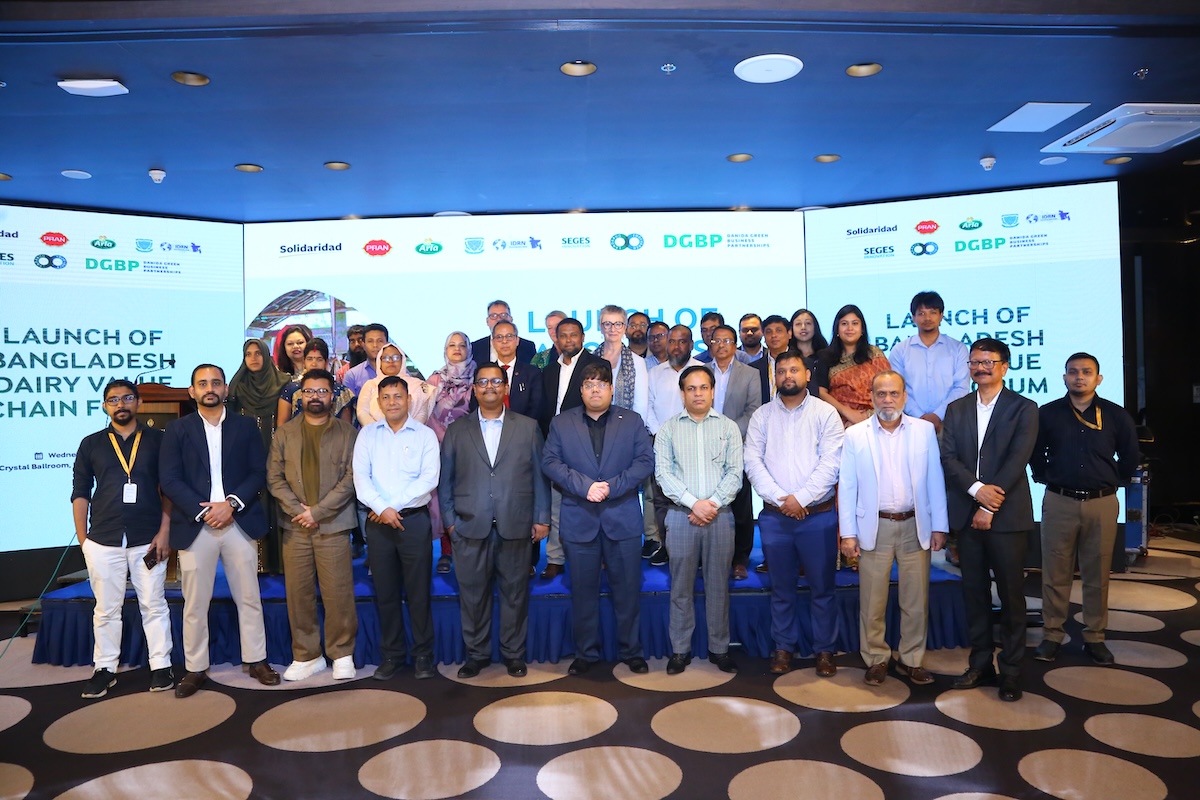Bangladesh’s dairy sector is crucial to the food security and livelihoods of 9.4 million people. There are as many as 1.48 million dairy farms operating formally and informally across the country, a majority of which are run by smallholder farmers.
Valued at USD 2.47 billion (2.09 billion euros), the Bangladeshi dairy sector contributes heavily to the country’s growth and prosperity. Despite the sector’s significant contribution to income and nutrition security, numerous challenges persist, hindering its ability to close the supply–demand gap. High production and processing costs, lack of access to quality feed for animals, climate change impacts and limited land availability are all putting strain on the industry. Further, the national dairy development policy has not yet addressed the productivity gap.
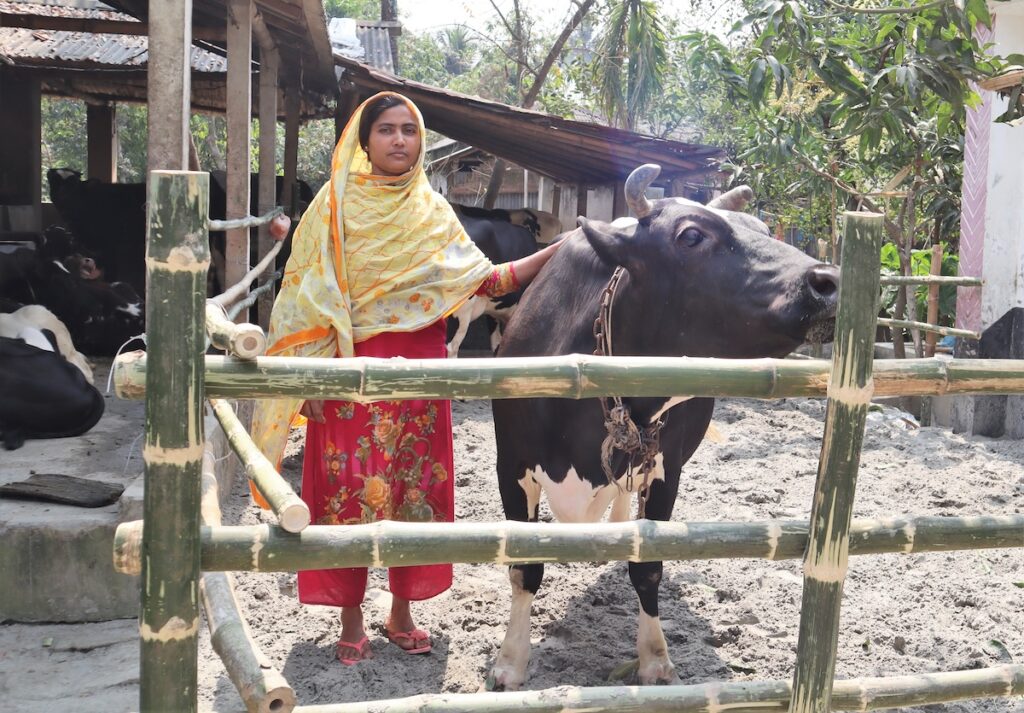
In response to these challenges, the Dairy Value Chain Forum was launched in July this year by industry leaders in Dhaka, Bangladesh. The Forum addresses the sectoral issues by:
- Promoting responsible business practices: Advocating for inclusive, carbon-neutral and safe operations that benefit both producers and consumers
- Fostering a fair and competitive industry: Ensuring equitable opportunities for farmers, workers and customers
- Driving evidence-based positive change: Uniting farmers, cooperatives, entrepreneurs, government bodies, NGOs, academic networks and the broader industry to implement impactful solutions
A crucial goal of the Forum is to address the supply–demand gap in Bangladesh’s dairy sector, underscoring the urgent need for change. Its ambition is to make the dairy sector more productive and resilient, while protecting consumers’ access to nutritious, safe and responsibly produced dairy products. The Forum also works to ensure a level playing field for all stakeholders, which is vital for the sustainability of the dairy business as it ensures that benefits are shared fairly.
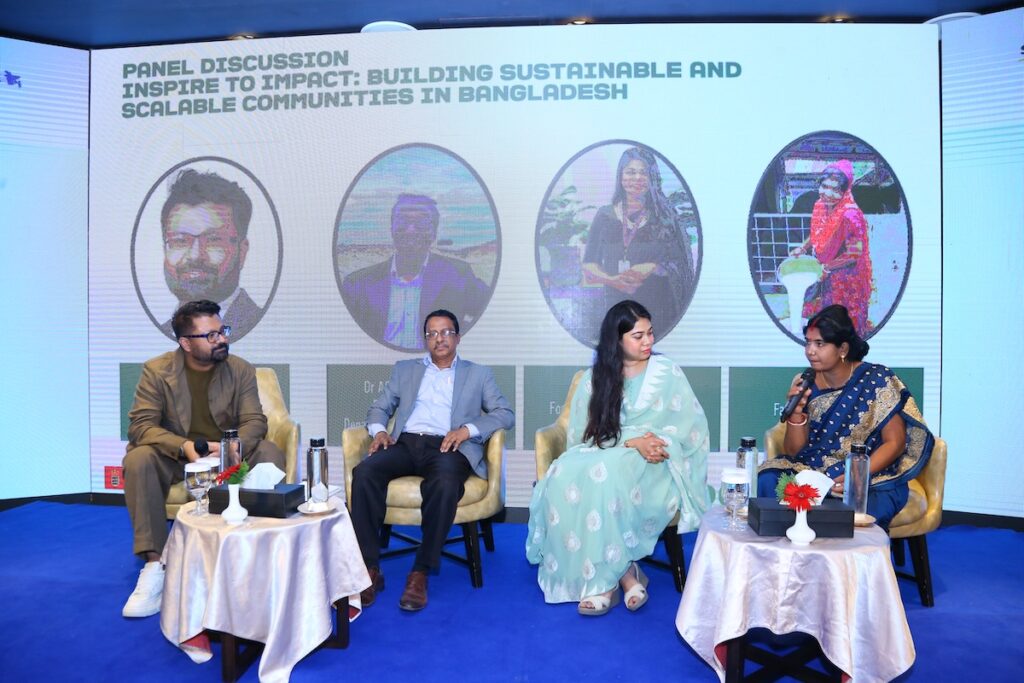
At the launch, Dr. Md. Abu Sufiun, Director General of the Department of Livestock Services (DLS) for Bangladesh, called the Forum a crucial and timely initiative for uniting stakeholders and committing to an efficient and sustainable dairy sector in Bangladesh.
“A functioning dairy value chain can contribute meaningfully to our nutrition security, poverty reduction, and rural development. This will only happen through continued collaboration and commitment from the government, the private sector, farmers, farmer organizations, NGOs, and research organizations”
Dr. Md. Abu Sufiun, Director general of the department of livestock services for bangladesh
The Green Dairy Partnership
The Dairy Value Chain Forum is an outcome of the Green Dairy Partnership, supported by the Danida Green Business Partnership under the Ministry of Foreign Affairs of Denmark. This partnership seeks to support over 10,000 farmer households in Bangladesh, with 50 percent being female-led. The goal of the forum is to support a 30 percent increase in income and a 30 percent improvement in dairy productivity for these farmers. Simultaneously, it aims to achieve a 30 percent reduction in greenhouse gas (GHG) emissions by March 2028, when the program is set to finish.
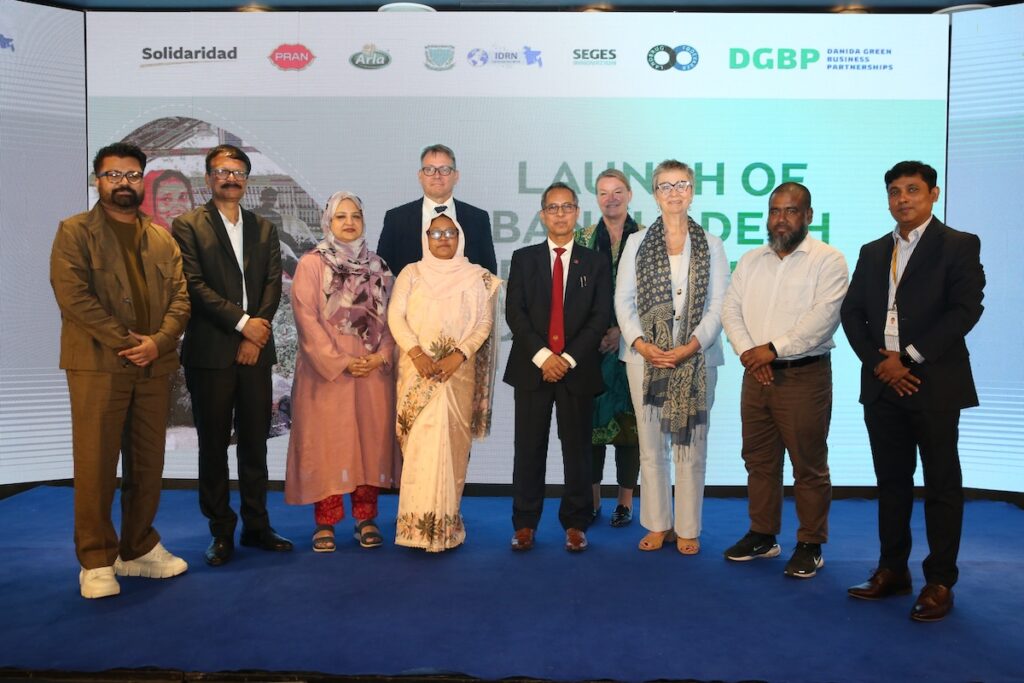
The initiative is supported by a consortium comprising national and international experts of Solidaridad, PRAN, Arla Foods, the Danish Agriculture & Food Council, SEGES Innovation and IDRN-Bangladesh Agricultural University. The public-private partnership demonstrates that global innovation can be adapted with local knowledge to drive innovation for building a productive, resilient and responsible dairy business in Bangladesh.
“The Dairy Value Chain Forum [and the Green Dairy Partnership] is not just about reducing emissions or increasing productivity—it’s about creating lasting and inclusive change for responsible business. By working hand-in-hand with farmers, businesses, and authorities, we’re building a dairy industry that can secure nutrition to a growing population in Bangladesh. This Forum has brought together knowledge and voices from actors across the value chain—farmers, researchers, private sector leaders, and policymakers—to co-create a resilient and sustainable dairy sector that is not only productive, but also environment-positive and people-centered.”
Irene Q. Mortensen, International Head of Sustainability, Arla Foods
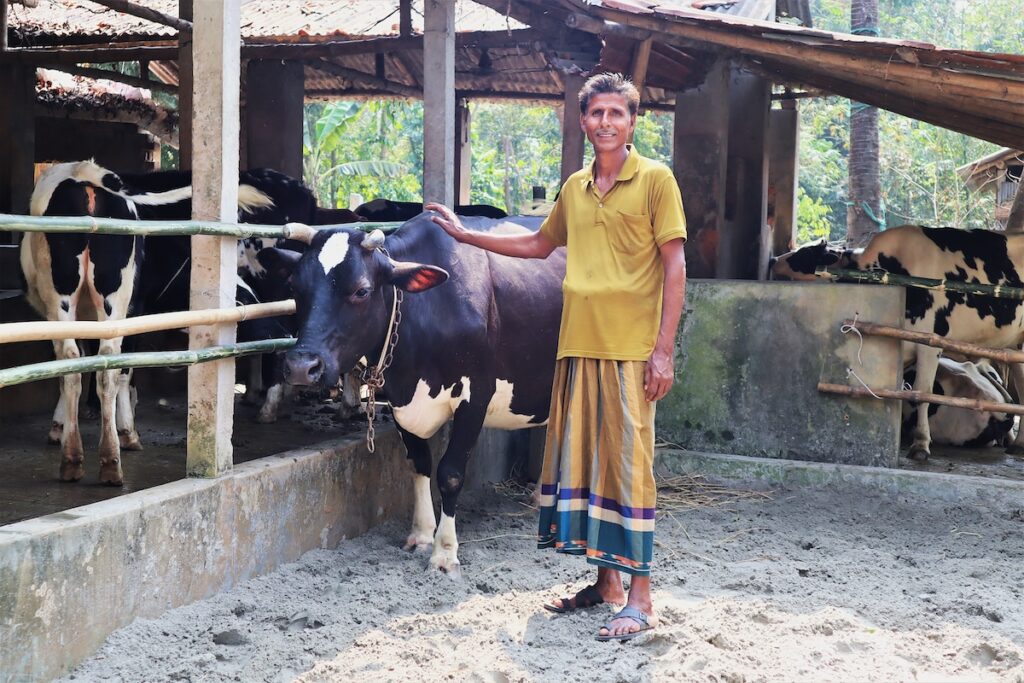
The Big 5 Model
The Dairy Value Chain Forum has adopted and adapted the Big 5 model. This model has been developed by Arla Foods, one of the five biggest global producers of dairy products, and SEGES Innovation, an independent research and innovation company. The five components of the model are:
- Feed Efficiency: Improving feed conversion rates and minimizing waste to boost milk yield
- Feed Balance: Ensuring nutritionally balanced rations for animals to reduce nutrient loss
- Animal Robustness: Strengthening animal health and resilience for improved productivity
- Manure Management: Optimizing manure use as fertilizer and input for biogas
- Land Use: Maximizing yield per hectare and reducing the land footprint per litre of milk
The model promotes sustainable dairy farming, addressing critical aspects of dairy production to enhance productivity and climate action. Its implementation will be tracked using a Life Cycle Assessment (LCA) approach to provide data-driven insights for real change.
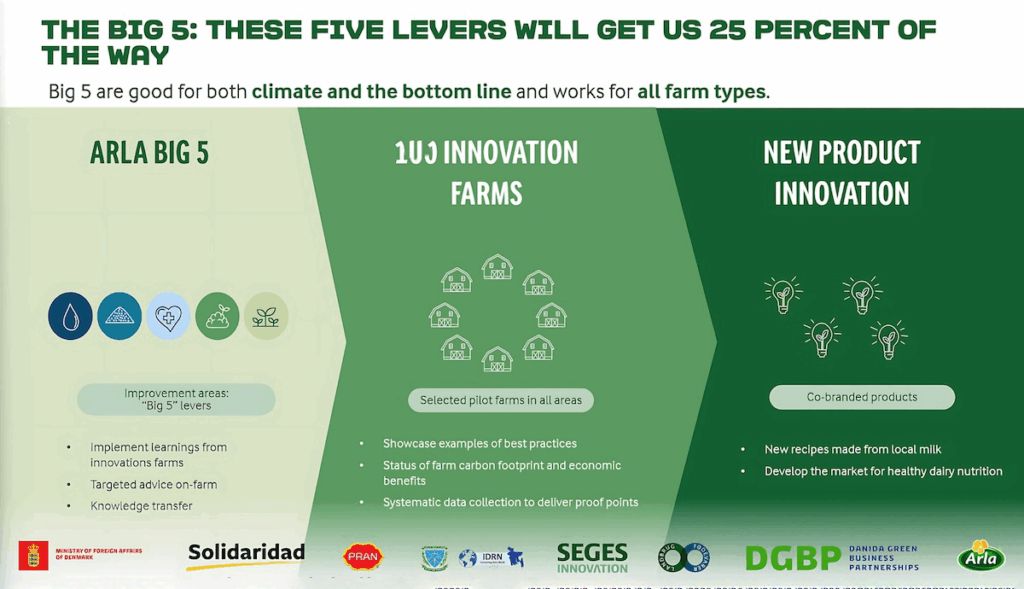
“The Forum will serve as a collective platform for advocacy, policy framework development, and investment to foster a sustainable and private sector-led dairy value chain. This transformation will be market-driven, private sector-led, and informed by evidence-based data. It will revolutionize Bangladesh’s dairy industry through piloting and innovation for increasing yield in an environmentally sustainable manner to make the dairy value chain carbon-neutral”
Selim Reza Hasan, Country Manager–Bangladesh, Solidaridad Network
Several other participants shared valuable perspectives at the launch of the Forum.
“Feed balance and feed efficiency are crucial strategies for reducing greenhouse gas emissions, as is effective manure management. In this respect, the Dairy Value Chain Forum is doing important work in bringing about self-sufficiency in the dairy sector.”
Dr. Shakila Faruque, Director General of the Bangladesh Livestock Research Institute (BLRI)
“Denmark and Bangladesh’s collaboration, spanning over 50 years, is sharply focused on green innovation and sustainability. This Green Dairy Partnership underscores a shared commitment to responsible business, inclusive growth, and practical climate action, fostering climate resilience, improved livelihoods, and responsible land use within Bangladesh’s unique dairy landscape.”
Anders B. Karlsen, Deputy Head of Mission, Embassy of Denmark
“A win-win collaboration will require all participating organizations to embrace key principles: open communication and transparency, effective problem-solving, collaborative innovation, resource sharing and synergy, and a commitment to sustainability and ethical practices. Crucially, the needs of both consumers and farmers must remain at the centre of all efforts.”
Uzma Chowdhury, Director, Finance, PRAN–RFL Group
“This initiative provides a toolkit of data-driven and science-based technologies designed to advance farmers and cooperatives towards ambitious sustainability targets. To facilitate achieving the overarching goal to reduce CO₂ emissions by 30 per cent, farmer-friendly, easy-to-understand guidelines and Standard Operating Procedures (SOPs) are being developed.”
Birgitte Wiedemann Daabeck, Special Consultant, SEGES Innovation
“The forum’s success reaffirms the unwavering commitment and collaboration of all consortium partners. The momentum will continue as they co-create a dairy sector that is not only productive but also planet-positive and people-centered.”
Dr. Mohammad Mohi Uddin, Network Coordinator, IDRN

